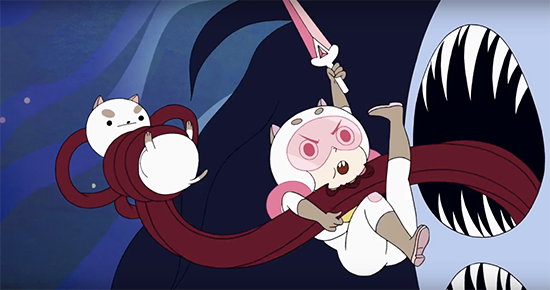
No Man is an Island: Changing Your Opinion About a Book
I like to think I’m a pretty independent-minded person. My internal monologue whenever someone tries to tell me what to think or what to do is basically that Bee and Puppycat clip of Bee yelling “DON’T TELL ME WHAT TO DOOOOO” on loop. So of course, I tend to think my opinion on a book is strictly my own — that I’m a free thinker, my thoughts are the undistilled essence of an objective person, etc. But if I’m honest with myself, I’ve changed my take on a book more than once…

“Don’t tell me what to doooo!” -Bee from Bee and Puppycat, CartoonHangover
Sure, sometimes, I change how I think about a book after I’ve mulled it over for a few days. Other times, I’ve switched up my take on a book after returning to a childhood favorite a decade later (hello, the Song of the Lioness series). All of that is still, essentially, my own thoughts on a particular book.
But there are other times when I’ve read a review of a book I was neutral on, and then my estimation of that book either rose or, more often than not, plummeted. Or I realized that a book I loved was problematic in its portrayal of an issue I wasn’t thoughtful enough about. Or a friend gushed about a favorite book, and I end up bandwagoning on.
In the end, I have to admit that no person is an island. (We’re updating John Donne over here.) My book thoughts are, more often than I like to admit, influenced by others. After a certain point, it’s hard to differentiate between my opinions and random-online-person’s opinions. It bothers me to know that this is happening more and more as I become more tuned into the book world. If my take on a book changes after I read a review or chat with someone, is it really my take on it? Am I just parroting someone else’s words?
Then again, maybe it’s all a part of the refining process. I want to grow more aware of social issues and how they interact with fiction — which means that there’s always going to be a book that I used to love that I later discover is problematic in some way. And sometimes I jump to needlessly harsh snap judgments about books.
So perhaps this is all a good thing. It’s hard to tell. When I change my mind about a book, am I following the crowd, or refining my thoughts? How do you feel about changing your book opinion? And am I going to get meta over here and let other people’s opinions on book opinions change my opinions? Hm…










